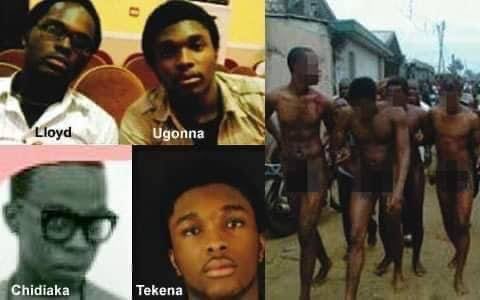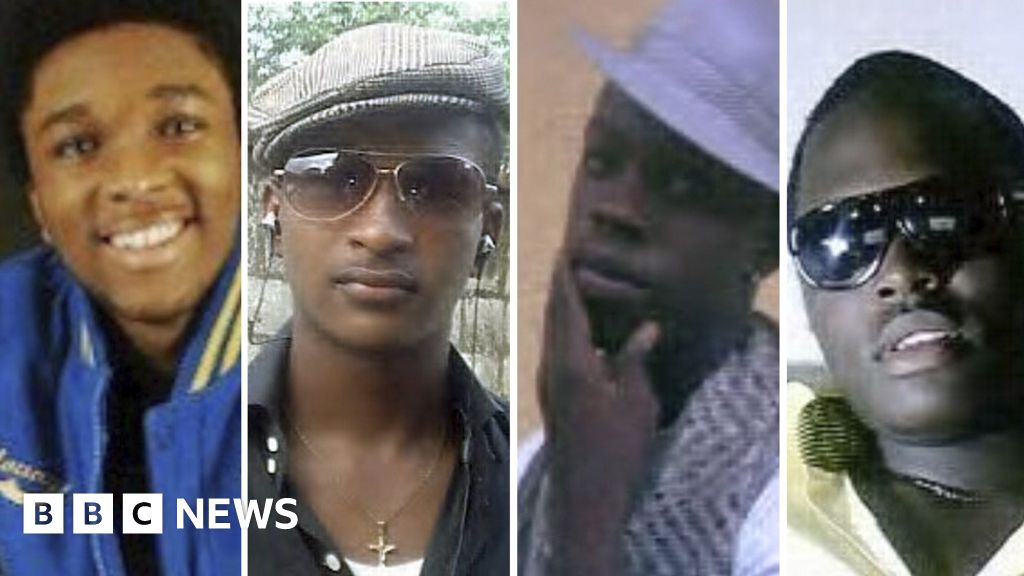DARK OCTOBER: 12 YEARS AFTER THE ALUU 4 LYNCHING

Yesterday, the 5th of October, 2024, marked 12 years since the gruesome lynching of Ugonna Obuzor, Tekena Elkanah, Chiadika Buringa, and Lloyd Toku, popularly known as The Aluu 4. The four young students of the University of Port Harcourt (UniPort) were brutally murdered by an angry mob on the 5th of October, 2012 after being falsely accused of being petty thieves, responsible for the theft of phones and laptops in the Aluu community. At that time, there had been a spate of robberies in that community, especially at dawn which coincidentally, happened to be the time they ran into the area’s local vigilante group. The four young men were immediately seized by the vigilante, given a mock trial by members of the community and the vigilante and found guilty, with punishment meted out immediately. They were publicly stripped, beaten and eventually set ablaze in the most dehumanising way possible, while all of this took place, spectators watched, others filmed.
The police made their way to this crime scene but were instructed not to interfere as this would incite the mob and cause them to destroy the police vehicle. Sergeant Lucky Orji, a police officer was filmed, hitting the boys with the back of his gun. Soon after, videos of the lynching made their way to social media, inciting a movement and a call for the arrest of the people who were actively involved in this dastardly act. Several suspects were arrested, including the sergeant who was later stripped of his title and position in the police force due to his involvement in the death of the boys. In July 2017, five years after the act, the federal high court in Rivers state found ex-Sergeant Lucky Orji, Ikechukwu Luis Amadi and David Chinansa Ogbaga, guilty of the murder of the four young men. They were all sentenced to death.
The incidence of the Aluu 4, is a constant reminder of the ineffective and unreliable justice and criminal justice system in Nigeria, where citizens resort to jungle justice to deal with individuals alleged to have committed petty crimes like theft or even blasphemy. Jungle justice refers to a situation where a group of people, in this case an angry mob take the law into their hands by administering punishment on someone they believe to be guilty of a crime without involving the legal system. Section 8 of the Administrative Criminal Justice Act (2015) prohibits jungle justice and stipulates that any person caught or arrested participating or engaging in mob justice may face relevant criminal charges. Irrespective of the laws put in place to discourage the participation of individuals in mob justice, there has been little to no change in the attitude of average members of the society towards this.

It is imperative to also note the role law enforcement agencies play in the rise of jungle justice across the country. In the case of these four boys, the police had the chance and authority to stop the mob but instead refused to act, the sergeant was also in the authority to stop the mob but rather participated actively in their torture. In most cases the police do not apprehend criminals, in cases where they are arrested, they’re still released back into society without being convicted or tried, thus leading individuals to take the law into their own hands, ultimately leading to the baseless murder of innocent citizens like the case of the Aluu 4.
In the end, the legacy of the four boys is a tragedy that incited public outcry, proving a step in the right direction towards criminalising and demonising jungle justice as well as calling for the arrest of the people involved in this act. Out of 18 people charged to court for the murder of the boys, only 3 were found guilty and sentenced, while some were discharged by the Directorate of Public Prosecutions the rest were acquitted on the count of lack of evidence by the prosecution to prove beyond reasonable doubt that they were actively involved in this crime.
The latest revelations by popular activist Martins Vincent Otse (Very Dark Man) aka VDM brought to life allegations that Okuneye Idris Olarenwaju (Bobrisky) who was sentenced to prison in April for abuse of Naira, did not serve his term. This has brought to light a broader issue, hinting at the corruption that goes on in the Nigerian correctional service system with Nigerian investigative journalist, Fisayo Soyombo revealing details about the kind of corruption that goes on in the justice system starting from when an alleged criminal is apprehended by the police, arraigned before a court and sentenced to serve a sentence, thus implying that whether or not justice is actually served is dependent on economic factors as individuals who can afford to bribe relevant individuals can bypass prison. These conversations showcase a bigger issue capturing the entire chain of justice, making it impossible for people to have faith in the justice system and resorting to self-help measures. For jungle justice to be completely eradicated in today’s society, the people have to believe in the system, trusting the system to do what is right and required of it, especially in dealing with criminals. How then can all of this be possible when the systems meant to be the hope of the common man and in charge of taking punitive measures against criminals only act as enablers due to the corruption that has eaten deep into the system?





